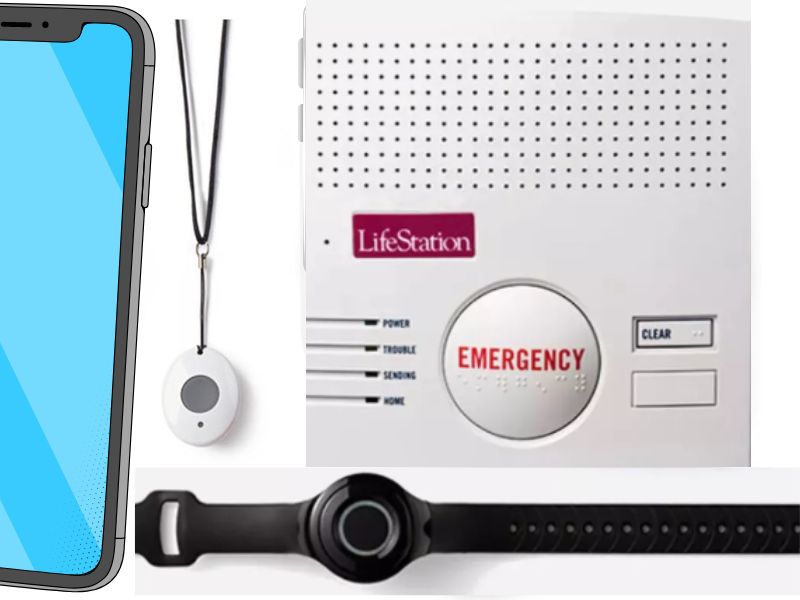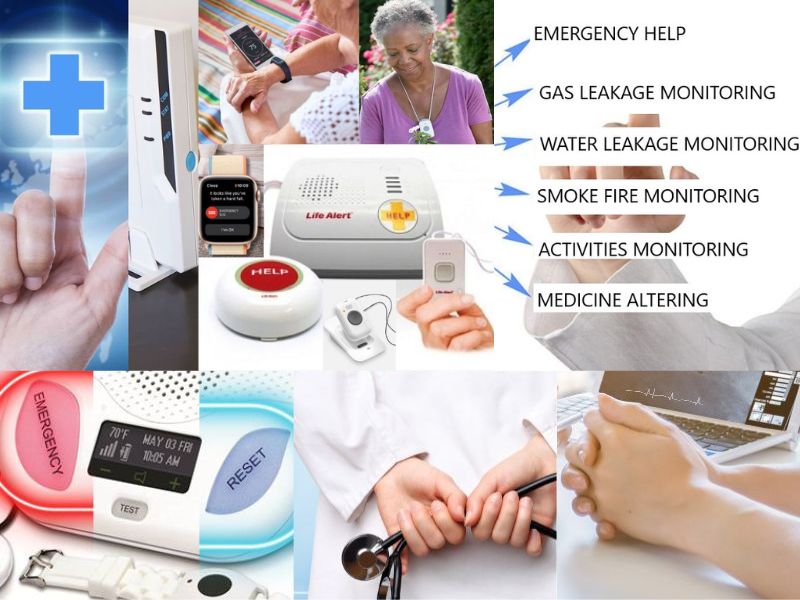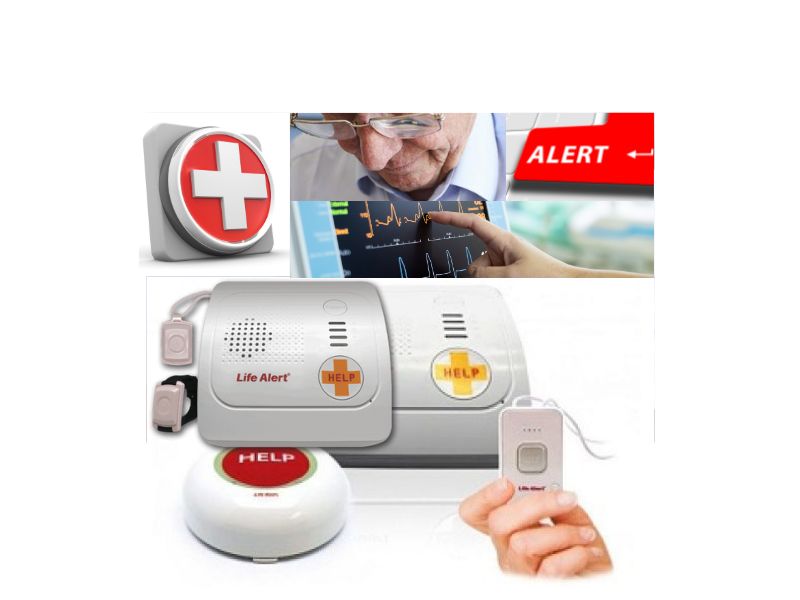Living with a neurological condition can be challenging for patients and their loved ones. The unpredictability of seizures falls, and other health issues associated with these conditions can make it difficult for patients to maintain their independence and safety.
However, with the help of medical alert systems, people with neurological conditions can have peace of mind, knowing that help is just a button press away. This article will discuss medical alert systems and how they can benefit people with neurological conditions.

Understanding People with Neurological Conditions
Neurological conditions can refer to a wide range of conditions that affect the brain and nervous system. Some common neurological conditions include Alzheimer’s disease, Parkinson’s disease, epilepsy, multiple sclerosis, and cerebral palsy, among others. These conditions can impact a person’s physical and cognitive abilities, leading to challenges in daily life.
Understanding people with neurological conditions is important to provide appropriate support and care. Here are a few key things to keep in mind:
Each Person is Unique
It’s important to remember that every person with a neurological condition is unique. Even people with the same condition can experience it differently. For example, one person with Parkinson’s disease may experience tremors and stiffness, while another may have difficulty with balance and coordination. It’s important to take the time to get to know each person and understand their individual needs and experiences.
Communication is Key
Communication is crucial when working with people with neurological conditions. People may have difficulty speaking, understanding language, or expressing themselves, depending on the condition. It’s important to be patient and allow the person time to communicate in their own way. Using non-verbal cues, such as facial expressions and body language, can also help understand what the person is trying to communicate.

Respect Their Dignity
People with neurological conditions may require assistance with daily tasks, but it’s important to respect their dignity and independence. When providing care or support, it’s important to involve the person in decision-making and allow them to maintain as much control as possible over their own lives.
Be Aware of the Emotional Impact
Living with a neurological condition can be emotionally challenging. People with these conditions may experience frustration, anxiety, depression, or other emotions related to their condition. Being aware of the emotional impact and offering support and understanding is important.
Adapt to Changing Needs
Neurological conditions can be progressive, meaning a person’s needs may change. It’s important to be flexible and adaptable and to adjust support and care to meet changing needs.
By taking the time to communicate effectively, respecting their dignity and independence, and offering support and understanding, we can provide the care and support that people with neurological conditions need to live full and meaningful lives.
Understanding Medical Alert Systems
Medical alert systems are devices that are designed to assist in case of a medical emergency. They typically consist of a base station and a wearable device, such as a bracelet or pendant. When the user presses the button on their wearable device, it sends a signal to the base station, which then contacts a monitoring center.
Trained professionals at the monitoring center will then assess the situation and determine the appropriate action, including calling emergency services, contacting a caregiver or family member, or simply reassuring the user.
Benefits of Medical Alert Systems for People with Neurological Conditions
Medical alert systems can provide numerous benefits for people with neurological conditions, including:
Quick Response Times
In case of a medical emergency, every second counts. Medical alert systems can provide quick response times, ensuring that help is coming soon. This is especially important for people with neurological conditions who may experience seizures or falls that require immediate attention.
Increased Safety and Independence
Medical alert systems can provide increased safety and independence for people with neurological conditions. With a medical alert system, users can be confident about their daily activities knowing that help is just a button press away. This can provide a sense of freedom and independence that may have been lost due to the limitations of their condition.

Peace of Mind for Caregivers
Medical alert systems can also provide peace of mind for caregivers of people with neurological conditions. Caregivers can rest easy knowing that their loved one has access to help whenever they need it. This can alleviate some of the stress and anxiety of caring for someone with a neurological condition.
Choosing a Medical Alert System
When choosing a medical alert system, there are several factors to consider. Some of these include:
Type of Device
Medical alert systems come in various forms, including bracelets, pendants, and watches. It is important to choose a comfortable and easy device, as the user will be wearing it for extended periods.
Range
The range of the medical alert system is also an important consideration. Users should choose a system with a range that covers their home and yard and any other areas they may frequent.
Monitoring Center
The monitoring center is the backbone of the medical alert system. Users should choose a system that has a reliable and responsive monitoring center, with trained professionals available 24/7.
Conclusion
Medical alert systems can provide a lifeline for people with neurological conditions, allowing them to maintain their independence and safety. By providing quick response times, increased safety and independence, and peace of mind for caregivers, medical alert systems can be a valuable addition to the lives of those with neurological conditions.
When choosing a medical alert system, it is important to consider factors such as the type of device, range, and monitoring center. By doing so, users can ensure they have access to help whenever needed.
